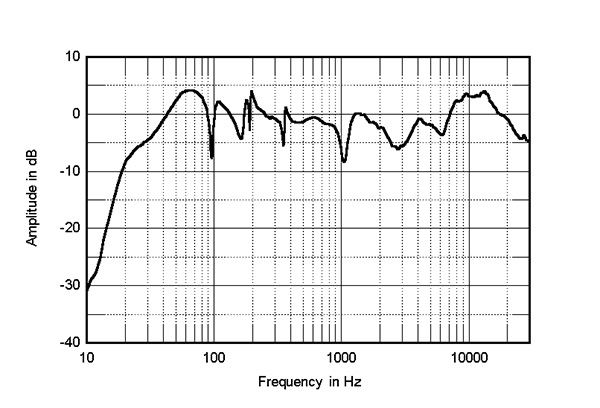@cdc You don’t have the reviewers’ ears. So, anything subjective said is like throwing darts. I ignore the subjective crap they throw out because it is useless to me.
I look at the measurements on Stereophile - ignore the platitudes.
What if a high end speaker measures really badly?
You know, it's true that I feel listening is more important than measurements and that it's generally difficult to really tie together measurements with pleasure. Below 0.05% THD do I care? No I do not. I really don't care. The number tells me nothing about whether I'd like the amp more or not anymore.
In this one memorable review for the Alta Audio Adam speaker, I really felt shivers go up my spine when I looked at the measurements, especially at ~$20kUSD. This looks like an absolute hot mess. Does it sound this bad though? I certainly don't have the $20K to test that out myself. What do you all think?

@cdc You don’t have the reviewers’ ears. So, anything subjective said is like throwing darts. I ignore the subjective crap they throw out because it is useless to me. I look at the measurements on Stereophile - ignore the platitudes. |
This is what highly experienced and knowledgeable listeners with sufficient hearing ability can do. Perhaps unfortunately, the majority of audiophiles are relatively inexperienced, and many are nearly in need of cochlear implants. Then there are those who either cannot understand measurements, or mistakenly believe they understand them, such as the guy upthread who claims comb-filtering is relatively benign (incorrect). They read the literature of Toole and Olive but misinterpret the data and theories. That or they misrepresent the data in bad faith—in order to support their false narrative (like the speaker designers who point to Equal Loudness Contours to justify poor linearity (Audio Note for example). What is most ironic, is some such manufacturers will only aim for linearity and low distortion where their flagship products are concerned. It’s easy to make the next higher performance tier legitimately better when the predecessor is mediocre. |
@helomech That is BS. Who trained them to hear that way. I would say fine, if they were a trained musician. Not supposed golden ears. I have been when a few were fooled by low-cost systems when they couldn't see the system playing. I went through taste training, when I worked at a distillery. I was not as good at others, that is the truth, so unless there is a standard training I don't believe 'Golden Ears' audiophiles. Since I know the rigor that goes into training ONE sense, that is standardized in the industry. |
It’s true there is no industry-wide standard for listening, however, Toole and Harman have an established training and ability standard for the listeners it employs in its DBX comparisons. I would bet it’s similar for the wine industry too, you would probably see different standards had you attended training elsewhere (though the whole analogy is a straw-man argument anyhow, since we don’t hear with our tongues). Regardless, I wasn’t implying that some of us are simply blessed with golden ears, I was merely pointing out the facts that 1) the majority who engage in the “hobby” are well into their retirement years, and it’s statistically true that most have suffered 10s of dB hearing loss relative to someone in their 20s or 30s. 2) I was also pointing to the poster’s mention of his experience with DIY and modifications, which the vast majority of audiophiles lack. Such experience can be very educational for correlating measurements with subjective sound quality. I don’t think it’s a stretch to presume the majority of audiophiles have never built their own speakers or designed a crossover, or even read some of Dr. Toole’s and Olive’s research for the matter. I would bet the vast majority cannot interpret measurement graphs beyond a simple on-axis impulse response. Regarding experience, it also helps to purchase and/or listen to speakers for which 3rd-party measurements are published. For example, of the ≈35 speaker pairs I’ve owned over the last decade, there are published measurements available for at least 20 of them, probably more. So if I hear something offensive, I can subsequently reference the graphs to see whether there is a blatant or likely culprit (which of course requires comprehension of said graphs). More often than not, the cause is rather obvious if the measurement suit is thorough. Sometimes the cause is not so blatant, but that’s typically the case when the offense is relatively minor, or in cases of “sins of omission.” For example, if I find a speaker has a tendency to be fatiguing only after lengthy listening sessions, it could be that it has a driver break up mode that isn’t apparent without a waterfall/CSD graph or distortion data to reference. Again, my comment was not to imply that some are simply gifted with golden ears and those listeners prefer textbook measurements. I was merely pointing to the facts that some have experience in correlating measurements to sound quality that many (if not most) lack, and of course, we all tend to suffer hearing decline as we age. So if someone in their early 20s tells me they are fatigued by a speaker that trends upward in the highs, I realize I may not conclude the same speaker is fatiguing to my ears. I hope that clarifies the intent of my post.
|